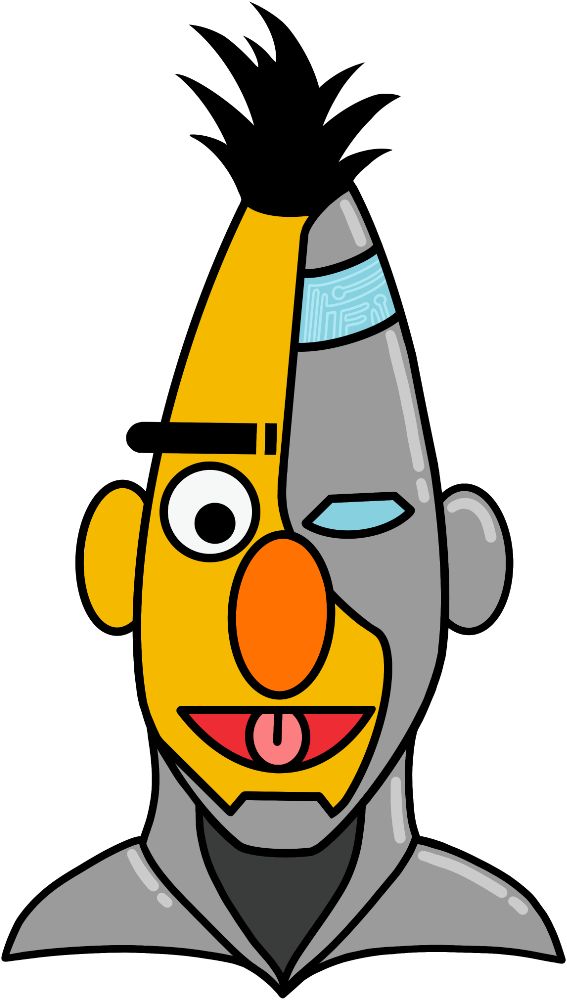A Unified Library for Parameter-Efficient and Modular Transfer Learning
Project description

Adapters
A Unified Library for Parameter-Efficient and Modular Transfer Learning
Website • Documentation • Paper
Adapters is an add-on library to HuggingFace's Transformers, integrating 10+ adapter methods into 20+ state-of-the-art Transformer models with minimal coding overhead for training and inference.
Adapters provides a unified interface for efficient fine-tuning and modular transfer learning, supporting a myriad of features like full-precision or quantized training (e.g. Q-LoRA, Q-Bottleneck Adapters, or Q-PrefixTuning), adapter merging via task arithmetics or the composition of multiple adapters via composition blocks, allowing advanced research in parameter-efficient transfer learning for NLP tasks.
Note: The Adapters library has replaced the
adapter-transformerspackage. All previously trained adapters are compatible with the new library. For transitioning, please read: https://docs.adapterhub.ml/transitioning.html.
Installation
adapters currently supports Python 3.9+ and PyTorch 2.0+.
After installing PyTorch, you can install adapters from PyPI ...
pip install -U adapters
... or from source by cloning the repository:
git clone https://github.com/adapter-hub/adapters.git
cd adapters
pip install .
Quick Tour
Load pre-trained adapters:
from adapters import AutoAdapterModel
from transformers import AutoTokenizer
model = AutoAdapterModel.from_pretrained("roberta-base")
tokenizer = AutoTokenizer.from_pretrained("roberta-base")
model.load_adapter("AdapterHub/roberta-base-pf-imdb", source="hf", set_active=True)
print(model(**tokenizer("This works great!", return_tensors="pt")).logits)
Adapt existing model setups:
import adapters
from transformers import AutoModelForSequenceClassification
model = AutoModelForSequenceClassification.from_pretrained("t5-base")
adapters.init(model)
model.add_adapter("my_lora_adapter", config="lora")
model.train_adapter("my_lora_adapter")
# Your regular training loop...
Flexibly configure adapters:
from adapters import ConfigUnion, PrefixTuningConfig, ParBnConfig, AutoAdapterModel
model = AutoAdapterModel.from_pretrained("microsoft/deberta-v3-base")
adapter_config = ConfigUnion(
PrefixTuningConfig(prefix_length=20),
ParBnConfig(reduction_factor=4),
)
model.add_adapter("my_adapter", config=adapter_config, set_active=True)
Easily compose adapters in a single model:
from adapters import AdapterSetup, AutoAdapterModel
import adapters.composition as ac
model = AutoAdapterModel.from_pretrained("roberta-base")
qc = model.load_adapter("AdapterHub/roberta-base-pf-trec")
sent = model.load_adapter("AdapterHub/roberta-base-pf-imdb")
with AdapterSetup(ac.Parallel(qc, sent)):
print(model(**tokenizer("What is AdapterHub?", return_tensors="pt")))
Useful Resources
HuggingFace's great documentation on getting started with Transformers can be found here. adapters is fully compatible with Transformers.
To get started with adapters, refer to these locations:
- Colab notebook tutorials, a series notebooks providing an introduction to all the main concepts of (adapter-)transformers and AdapterHub
- https://docs.adapterhub.ml, our documentation on training and using adapters with adapters
- https://adapterhub.ml to explore available pre-trained adapter modules and share your own adapters
- Examples folder of this repository containing HuggingFace's example training scripts, many adapted for training adapters
Implemented Methods
Currently, adapters integrates all architectures and methods listed below:
| Method | Paper(s) | Quick Links |
|---|---|---|
| Bottleneck adapters | Houlsby et al. (2019) Bapna and Firat (2019) Steitz and Roth (2024) |
Quickstart, Notebook |
| AdapterFusion | Pfeiffer et al. (2021) | Docs: Training, Notebook |
| MAD-X, Invertible adapters |
Pfeiffer et al. (2020) | Notebook |
| AdapterDrop | Rücklé et al. (2021) | Notebook |
| MAD-X 2.0, Embedding training |
Pfeiffer et al. (2021) | Docs: Embeddings, Notebook |
| Prefix Tuning | Li and Liang (2021) | Docs |
| Parallel adapters, Mix-and-Match adapters |
He et al. (2021) | Docs |
| Compacter | Mahabadi et al. (2021) | Docs |
| LoRA | Hu et al. (2021) | Docs |
| MTL-LoRA | Yang et al., 2024 | Docs |
| (IA)^3 | Liu et al. (2022) | Docs |
| Vera | Kopiczko et al., 2024 | Docs |
| UniPELT | Mao et al. (2022) | Docs |
| Prompt Tuning | Lester et al. (2021) | Docs |
| QLoRA | Dettmers et al. (2023) | Notebook |
| ReFT | Wu et al. (2024) | Docs |
| Adapter Task Arithmetics | Chronopoulou et al. (2023) Zhang et al. (2023) |
Docs, Notebook |
Supported Models
We currently support the PyTorch versions of all models listed on the Model Overview page in our documentation.
Developing & Contributing
To get started with developing on Adapters yourself and learn more about ways to contribute, please see https://docs.adapterhub.ml/contributing.html.
Citation
If you use Adapters in your work, please consider citing our library paper: Adapters: A Unified Library for Parameter-Efficient and Modular Transfer Learning
@inproceedings{poth-etal-2023-adapters,
title = "Adapters: A Unified Library for Parameter-Efficient and Modular Transfer Learning",
author = {Poth, Clifton and
Sterz, Hannah and
Paul, Indraneil and
Purkayastha, Sukannya and
Engl{\"a}nder, Leon and
Imhof, Timo and
Vuli{\'c}, Ivan and
Ruder, Sebastian and
Gurevych, Iryna and
Pfeiffer, Jonas},
booktitle = "Proceedings of the 2023 Conference on Empirical Methods in Natural Language Processing: System Demonstrations",
month = dec,
year = "2023",
address = "Singapore",
publisher = "Association for Computational Linguistics",
url = "https://aclanthology.org/2023.emnlp-demo.13",
pages = "149--160",
}
Alternatively, for the predecessor adapter-transformers, the Hub infrastructure and adapters uploaded by the AdapterHub team, please consider citing our initial paper: AdapterHub: A Framework for Adapting Transformers
@inproceedings{pfeiffer2020AdapterHub,
title={AdapterHub: A Framework for Adapting Transformers},
author={Pfeiffer, Jonas and
R{\"u}ckl{\'e}, Andreas and
Poth, Clifton and
Kamath, Aishwarya and
Vuli{\'c}, Ivan and
Ruder, Sebastian and
Cho, Kyunghyun and
Gurevych, Iryna},
booktitle={Proceedings of the 2020 Conference on Empirical Methods in Natural Language Processing: System Demonstrations},
pages={46--54},
year={2020}
}
Project details
Release history Release notifications | RSS feed
Download files
Download the file for your platform. If you're not sure which to choose, learn more about installing packages.
Source Distribution
Built Distribution
Filter files by name, interpreter, ABI, and platform.
If you're not sure about the file name format, learn more about wheel file names.
Copy a direct link to the current filters
File details
Details for the file adapters-1.2.0.tar.gz.
File metadata
- Download URL: adapters-1.2.0.tar.gz
- Upload date:
- Size: 226.7 kB
- Tags: Source
- Uploaded using Trusted Publishing? No
- Uploaded via: twine/1.13.0 pkginfo/1.4.2 requests/2.23.0 setuptools/40.5.0 requests-toolbelt/0.8.0 tqdm/4.46.0 CPython/3.6.8
File hashes
| Algorithm | Hash digest | |
|---|---|---|
| SHA256 |
40db5c5e0789603859980229f7acbae51168abf1999efdb65e5a7778e81a104e
|
|
| MD5 |
0d91b307594cfdd616c5053594b6af58
|
|
| BLAKE2b-256 |
5fc796580e5b7417b0838bd3e41a416939be63a549f22cfe0bcf8cdc62fd2ed8
|
File details
Details for the file adapters-1.2.0-py3-none-any.whl.
File metadata
- Download URL: adapters-1.2.0-py3-none-any.whl
- Upload date:
- Size: 302.2 kB
- Tags: Python 3
- Uploaded using Trusted Publishing? No
- Uploaded via: twine/1.13.0 pkginfo/1.4.2 requests/2.23.0 setuptools/40.5.0 requests-toolbelt/0.8.0 tqdm/4.46.0 CPython/3.6.8
File hashes
| Algorithm | Hash digest | |
|---|---|---|
| SHA256 |
fa55ddd9a99577ad0bacb16bebd0a26b6c5db2eae8730b5bfe4403eb917f2e22
|
|
| MD5 |
88909dfa688669eaf0d74fab4de10590
|
|
| BLAKE2b-256 |
dce591cb0ea212558443b3d62e2b8d8537647549b9c6d34d613847a9fb2fcc58
|
















